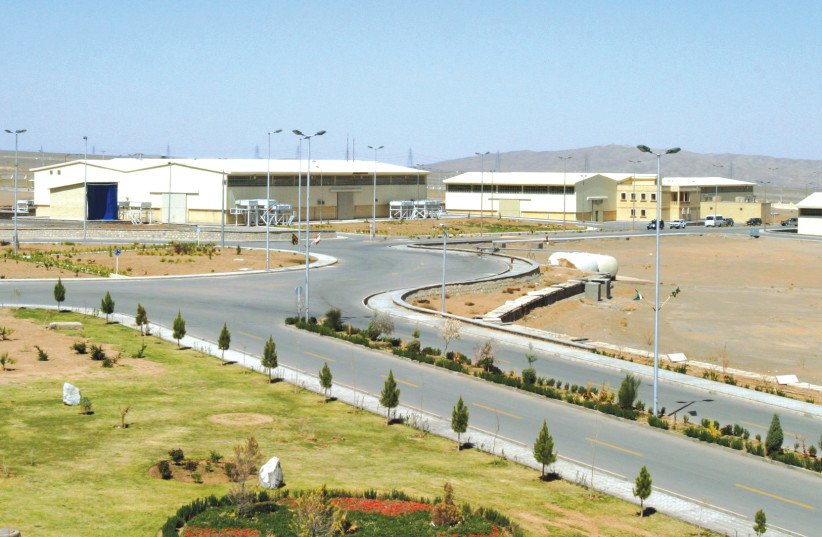On Monday, Iran got the loudest it has been about closing off the International Atomic Energy Agency’s probes into the past military dimensions of its nuclear program.
It is highly unlikely that the West would prematurely close the IAEA’s probes in a formal sense when the Islamic Republic has blatantly failed to answer a number of serious questions unearthed by the Mossad’s seizure of Tehran’s secret nuclear archives in January 2018.
But will the West close these probes through an informal understanding even if the IAEA, at least in public, pretends to still try to get real answers from Iran Supreme Leader Ayatollah Ali Khamenei?
If this occurs, it will end much of the powerful synergy between the Mossad and the IAEA which has propelled many world events and narratives for the last four years.
In June 2020, February-March 2021, November-December 2021 and next month, IAEA Board of Governor’s decisions, potential decisions and reports about Iran’s progress forced Khamenei’s hand.
The June 2020 IAEA Board condemnation of Iran – the first since the 2015 JCPOA nuclear deal - largely came after the Islamic Republic had tried to ignore questions that the IAEA raised based on Mossad’s evidence.

That condemnation gave Mossad the legitimacy to blow up Khamenei’s Natanz nuclear facility in July 2020, to assassinate his nuclear chief Mohsen Fakhrizadeh and a number of other moves.
It also got the IAEA access to illicit undeclared nuclear sites that the Mossad had revealed.
February 2021, IAEA negotiations with Iran and a March 2021 meeting with the threat of another condemnation for failing to answer questions the IAEA asked based on the Mossad evidence, helped force Khamenei to renew nuclear negotiations with the West in April 2021.
Negotiations were paused for several months when former Iranian president Hassan Rouhani’s term ended.
But the same IAEA threat in November 2021 led to announcing the renewal of nuclear negotiations with the West by Iran’s new President Ebrahim Raisi.
If Khamenei goes for a deal now, it will be to avoid IAEA condemnation at the upcoming meeting around March 7.
Condemnation from the IAEA not only carries general diplomatic and public relations consequences, it can also lead to a referral to the UN Security Council that could eventually lead to worldwide snapback sanctions far broader than the US sanctions currently in place.
Mind you, the IAEA furiously disputes that it took hints from the Mossad and trumpets that it has its own external and independent evidentiary process to arrive at its basis for questioning Iran.
Yet, all of this is irrelevant in the mindset of the ayatollahs.
From Khamenei’s perspective, dropping the Mossad-based IAEA probes is going back to a founding value of the JCPOA: Forget about the ayatollahs’ illicit nuclear past as long as they keep their nuclear enrichment limited for a period of time going forward.
The trouble is that the Mossad found undeclared illicit nuclear sites and undeclared nuclear material – which the Islamic Republic has failed to account for – and all this is from 2018 and later, meaning after the JCPOA.
So the West and the IAEA cannot likely formally close the issue.
Yet, even if they reach an informal understanding to bury Mossad’s findings and the IAEA’s own findings that came out of Israel’s spy agency’s help, this will end a major pressure point for Iran going forward.
If sanctions are removed and no one is pressing them to answer the IAEA’s annoying and troublesome questions, there is literally no motivation whatsoever to make the JCPOA “longer and stronger” as the Biden administration pledged.
There is also nothing to hold over Tehran to prevent it from massively expanding its centrifuge fleet for enriching uranium when limits on that expire in 2025.
This is what is at stake if the connection between Mossad’s findings and the IAEA are broken in a potential impending deal.
